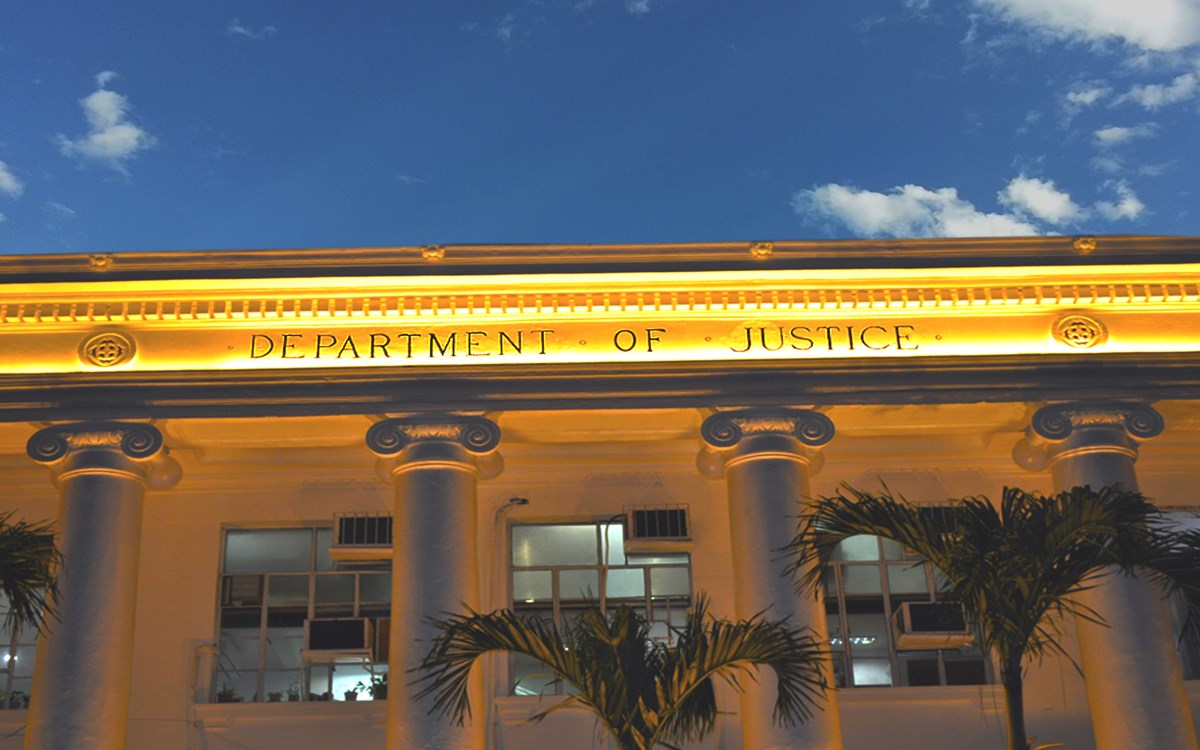DOJ: Updated criminal probe rules will not lead to abuses

Department of Justice facade. PHOTO FROM FACEBOOK
MANILA, Philippines — The updated rules on criminal investigation, which hands the conduct of preliminary investigation and determination of probable cause to state prosecutors, will not lead to abuses, according to the Department of Justice (DOJ).
In a briefing held by the Presidential Communications Office on Wednesday, Justice Undersecretaries Raul Vasquez and Jesse Hermogenes Andres admitted that greater responsibility is placed on the shoulders of prosecutors with the signing of the 2024 Department of Justice – National Prosecution Service (DOJ-NPS) Rules on Preliminary Investigation and Inquest Proceedings.
“Well, it’s not a joke that we tell them that they are Spider-Man — with greater power comes greater responsibility. We have also institutionalized the Prosecution Integrity Board. Again, this Prosecution Integrity Board is actually a nod towards the efforts of the judiciary under the Judicial Integrity Board nila,” Vazquez said.
“And this means that the Prosecution Integrity Board is the watchdog in the manner, the timeliness, and the potential of abuses that may be performed by the prosecutors in the exercise of their right,” he added.
Andres said there would be a certification signed by the prosecutors indicating that the case they came up with has a complete set of evidence.
“And if his certification is wrong, if he filed that, he will be held accountable under the Prosecution Integrity Board. So he will think twice about that because the certification is now a requirement that all of the evidence available has been compiled, there are no harassment cases,” he explained.
Justice Secretary Jesus Crispin Remulla on Wednesday signed the Rules on Preliminary Investigation and Inquest Proceedings in Malacañang. President Ferdinand Marcos Jr. was the witness.
READ: Marcos: Updated criminal probe rules will prevent filing of ‘frivolous suits’
According to Marcos, the new rules are transformative as these institutionalize the role of doing a preliminary investigation on a prosecutor.
Before, the courts conduct the preliminary investigation and determine if there is a case. With the new rules, a higher standard of evidence would be required to ensure that cases filed by prosecutors are winnable, therefore declogging court dockets and jails.
“The new rules elevate the quantum of evidence from probable cause to prima facie evidence with a reasonable certainty of conviction. This means that only strong cases are brought to trial, reducing frivolous suits and malicious prosecutions that clog our courts,” Marcos said.
“Veering away from the procedures that were more rigid, the new procedure now allows the submission of additional documents, enabling a more comprehensive examination of the case. The inquest proceedings also improve, providing a detailed process for handling warrantless arrests, including the filing of referral letters, submission of required evidence, provisional determination of arrest validity, and submission of lacking evidence,” he added.
Last March 28, Vasquez said the Supreme Court allowed the amendment of the Rules of Court, which will remove the authority of trial court officers to conduct a preliminary investigation in determining probable cause.
READ: SC to remove trial court’s authority to conduct preliminary probe
Vazquez said the amendment would create a “new paradigm” as the DOJ will now have control of the preliminary investigation. This, he said, would fast-track the trial as the judicial determination of probable cause would now be removed, therefore avoiding harassment suits.